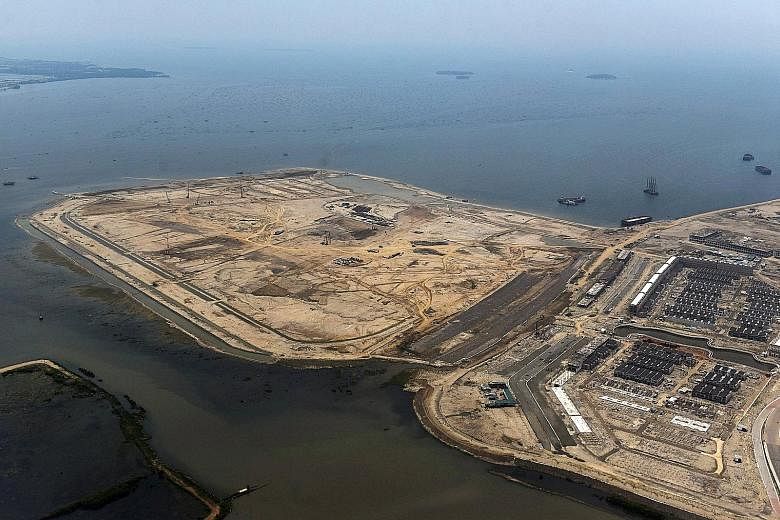Jakarta is reviving an ambitious plan to build a 24km-long sea wall by reclaiming land north of the capital. The barrier, originally meant to prevent the city from succumbing to rising sea levels and floods, is made up of 17 artificial islets.
The masterplan, however, now hinges on whether a private developer can resolve concerns over how its part of the project may affect the safety of a nearby power plant. This comes after a government study indicated that the site awarded to Muara Wisesa Samudra (MWS) may block off sea water needed to cool the Muara Karang Power Plant.
It is located at the mouth of Kali Krendang, a river that ends just as the site MWS is developing begins.
The firm, a subsidiary of Indonesian property giant Agung Podomoro Land, now needs to submit a proposal to the government, detailing how it plans to resolve the safety issue.
Environment and Forestry Minister Siti Nurbaya Bakar, who suspended the project in April, said last Friday that the MWS project can resume in a matter of weeks if the firm meets the government's conditions.
These include environmental impact analyses for the project, which "at a rough estimate, they will be completed within a month", Ms Siti was quoted as saying in The Jakarta Post last Saturday.

The suspension had threatened to derail Agung Podomoro Land's Pluit City development on the site, but its chief executive Cosmas Batubara said MWS already has a solution for the Muara Karang Power Plant.
He said yesterday that the firm will propose re-engineering the cooling system to ensure that only cool sea water is pumped into the plant to lower its temperature.
The alternative is to build a dedicated canal next to the islet, to prevent inflowing cool water and outflowing warm water from mixing.
The "Giant Sea Wall" project was first mooted in 1995, during Indonesia's New Order regime under then President Suharto.
This followed studies showing that Jakarta, located on a low flat basin below sea level, was sinking at a rate of up to 20cm a year, especially the northern parts of the city.
Jakarta has been trying to clean up its flagging canal systems for years, and the 24km-long seawall was meant to be the silver bullet to its flooding woes.
The latest version of the project ran into several roadblocks along the way, including disagreements between the central government and Jakarta governor Basuki Tjahaja Purnama over who had the authority to issue development permits.
Besides the power plant cooling issue, local fishermen also complained that land reclamation works, which started in 2014, affected their catch.
A group of fishermen is reportedly planning to file a legal challenge against the decision to resume land reclamation works in the area.
Coordinating Minister for Maritime Affairs Luhut Pandjaitan, who officially revived the project last Tuesday, remains optimistic that the endeavour, which could see North Jakarta turn into a vibrant waterfront city, will take off.
He told The Straits Times that the Joko Widodo government has concluded that "there is no reason not to go ahead with the reclamation" and plans are in place to help local fishermen continue their trade elsewhere, such as the waters off the Natunas.
"The President's orders include making the fishermen a priority," said Mr Luhut. "The 12,000 fishermen must be better off than they are now."
Mr Cosmas agreed, adding that besides the environmental concerns and safety of the power plant, his firm is also looking out for the interests of local fishermen.
"We care about the fishermen's well-being and will not just do anything we wish, but on the other hand fishermen should not think they monopolise the sea. Especially within 200m from the coast line, where the sea is polluted, so fishermen should want to travel farther out to fish," he said.

